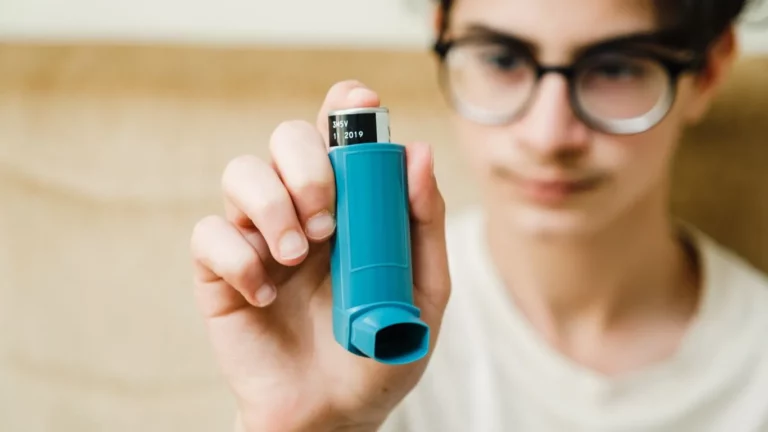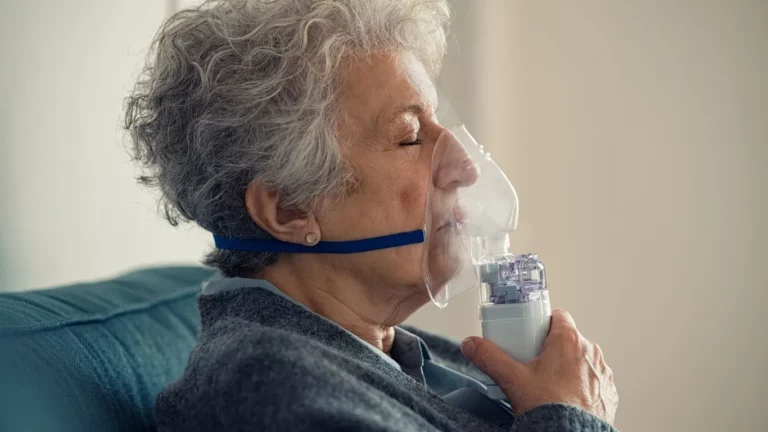Can Weight Loss Reduce GERD Symptoms? A Quick Guide
If you’ve ever laid down at night with that all-too-familiar burning in your chest, you know how disruptive GERD can be. I’ve been there myself. There was a time when a slice of pizza at 8 p.m. meant a guaranteed night of reflux misery. At the time, I didn’t connect the dots between my weight and those symptoms. But once I started shedding pounds, something unexpected happened—my GERD started to calm down. Let’s talk about how weight loss can actually change the game for acid reflux sufferers.
Why Weight and GERD Are Closely Linked

One of the most overlooked causes of GERD is excess weight around the abdomen. It’s not just about appearances—carrying that extra belly fat increases pressure on your stomach. This pressure weakens the lower esophageal sphincter (LES), the muscle that usually keeps stomach acid from climbing back up into your esophagus.
What Happens When That Pressure Builds
- The LES relaxes more often, even when it shouldn’t.
- Acid easily slips into the esophagus, causing that telltale burn.
- You may also experience bloating, burping, or a tight chest—especially after eating.
According to the National Institute of Diabetes and Digestive and Kidney Diseases (NIDDK), obesity significantly increases the risk of GERD. That’s not just a theory—it’s consistently shown in large studies.
The Science Behind Weight Loss and GERD Relief

Here’s the thing—even modest weight loss can bring serious relief. One study from the Cleveland Clinic found that losing as little as 10% of body weight significantly reduced reflux episodes in patients with GERD.
What’s Actually Improving Inside?
- Lower abdominal pressure: Less fat, less force on your stomach.
- Improved LES function: With less pressure, the valve does a better job of keeping acid down.
- Fewer inflammatory markers: Weight loss reduces systemic inflammation, which helps your digestive system run smoother.
And if you pair that weight loss with smart meal timing and posture improvements, the benefits snowball.
Before and After: A Quick Success Story

Meet Nadine. At 5’2” and 170 pounds, she battled nightly acid reflux for over five years. Proton pump inhibitors (PPIs) helped at first but eventually plateaued. After working with a dietitian, she dropped 30 pounds over six months. Her reflux didn’t just improve—it practically disappeared.
She told me, “It’s not just that I feel lighter. I sleep through the night without choking on acid. I forgot how good that feels.” Nadine’s story isn’t rare—it’s just rarely talked about enough.
What Kind of Weight Loss Works Best for GERD?

This isn’t about extreme workouts or fad diets. In fact, intense exercise on a full stomach can worsen GERD. Instead, here’s what actually works when managing reflux while losing weight:
Low-Impact, High-Yield Approaches
- Walking after meals – Even 15 minutes helps digestion and keeps acid down.
- Smaller, frequent meals – Keeps your stomach from overstretching and producing excess acid.
- Mindful snacking – Instead of skipping meals and bingeing later, keep reflux-friendly snacks on hand.
If you want a broader overview of how simple daily habits can calm your gut, check out these proven lifestyle changes for GERD relief.
What to Watch Out for When Losing Weight with GERD

Let’s be real—some diet trends clash hard with GERD. I tried intermittent fasting once and ended up with gnawing stomach pain by mid-morning. Lesson learned. Here’s what you’ll want to avoid:
Weight Loss Mistakes That Backfire
- Skipping breakfast: Can lead to an overly acidic stomach.
- High-fat diets: Trendy, but they relax the LES and can make symptoms worse.
- Overeating at dinner: Big meals at night = reflux nightmare, especially before bed.
And if you’re tempted to reward yourself with spicy food or wine after losing a few pounds, think again. Those are classic reflux triggers, and weight loss doesn’t cancel them out.
Related Read: Exercise and Weight Tips for GERD

If you’re on the move toward sustainable weight loss, you might also like this guide on managing weight and exercise with GERD. It’s packed with gentle routines and reflux-safe movement tips I personally swear by.
How Much Weight Do You Need to Lose to See Results?

You don’t need to drop 50 pounds to feel better. Research shows that just 5 to 10% of your current body weight can significantly reduce GERD symptoms. That’s the beauty of it—relief starts early in the journey.
In one published study, patients who lost an average of 13 pounds experienced fewer acid reflux episodes, less nighttime discomfort, and less need for medication. That’s huge. And honestly, it tracks with what I experienced. My symptoms started improving after the first 7 pounds. That gave me the motivation to keep going.
Signs Your GERD Is Improving With Weight Loss
- You don’t need antacids as often.
- Less bloating after meals.
- Nighttime heartburn becomes occasional instead of constant.
- You’re sleeping better without stacking pillows under your head.
Safe and GERD-Friendly Ways to Lose Weight

Here’s where things get real. Many common weight-loss strategies work against GERD. Think: keto diets heavy in fatty meats, extreme fasting, or juice cleanses with citrus overload. These can worsen reflux symptoms and leave you frustrated. But the good news? There’s a GERD-safe way to approach weight loss without aggravating your gut.
What Actually Works Without Worsening Reflux
- Choose low-fat proteins: Turkey breast, grilled fish, or lentils are easier on your stomach.
- Swap acidic for alkaline snacks: Try cucumber slices or a small banana instead of citrus fruits or spicy chips.
- Hydrate smart: Water helps—but sip slowly. Gulping air can make you bloated.
- Track food triggers: Keep a journal. You’ll be surprised which “healthy” foods secretly cause heartburn.
If you need food ideas that won’t throw your gut into chaos, consider exploring this guide on what to eat for acid reflux. It saved me when I had no clue what wouldn’t trigger a flare-up.
Daily Habits That Support Weight Loss and GERD Relief

If there’s one thing I’ve learned, it’s that small, consistent habits beat dramatic overhauls. GERD and weight loss both respond best to steady change. Here are some realistic daily tweaks that deliver big returns:
- Chew slowly: Helps reduce overeating and keeps acid from being forced upward.
- Eat dinner earlier: At least 2–3 hours before lying down. Total game changer.
- Walk after meals: Helps digestion and calorie burn, without jostling your stomach too hard.
- Sleep with your upper body elevated: Keeps acid in your stomach, not your throat.
Honestly, once I paired these with mindful eating, the late-night burning episodes just… stopped. I didn’t think it would be that simple, but my reflux is now rare enough that I actually forget what it used to feel like. That’s freedom.
When Weight Loss Isn’t Enough

Let’s be honest—weight loss doesn’t fix everything. If your GERD is severe, structural (like hiatal hernia-related), or driven by other health issues, you might still need medical intervention. But even then, weight loss will support any treatment you pursue.
If you’re taking PPIs or H2 blockers and still suffering, chat with your gastroenterologist. You may need tests like endoscopy or pH monitoring to rule out other causes. And remember, a personalized treatment plan often includes multiple approaches—diet, lifestyle, and medical therapy combined.
Can Weight Loss Prevent GERD from Coming Back?

In many cases, yes. When weight gain triggers your GERD, keeping that weight off often means keeping symptoms away. It’s not about perfection—it’s about maintenance.
Here’s what helped me stay in the safe zone:
- Meal prepping GERD-friendly foods so I’m not tempted by triggers.
- Carrying snacks like oatmeal bars or baked sweet potato chips to avoid overeating later.
- Weighing myself weekly—not obsessively, just to stay mindful.
And if you ever slip up (we all do), get back on track without guilt. GERD is a marathon, not a sprint.
Inspiring Others With Your Journey

One of the most powerful motivators in my journey was seeing others succeed. Whether it was a friend’s transformation or a forum post from a stranger, it reminded me that progress is possible. If you’re reading this while sitting upright at 2 a.m. because of heartburn—there’s a way out. And it might start with your next healthy choice.
Start small. Move a little. Eat a bit cleaner. Keep showing up for your gut. It’ll thank you later.

Camellia Wulansari is a dedicated Medical Assistant at a local clinic and a passionate health writer at Healthusias.com. With years of hands-on experience in patient care and a deep interest in preventive medicine, she bridges the gap between clinical knowledge and accessible health information. Camellia specializes in writing about digestive health, chronic conditions like GERD and hypertension, respiratory issues, and autoimmune diseases, aiming to empower readers with practical, easy-to-understand insights. When she’s not assisting patients or writing, you’ll find her enjoying quiet mornings with coffee and a medical journal in hand—or jamming to her favorite metal band, Lamb of God.







